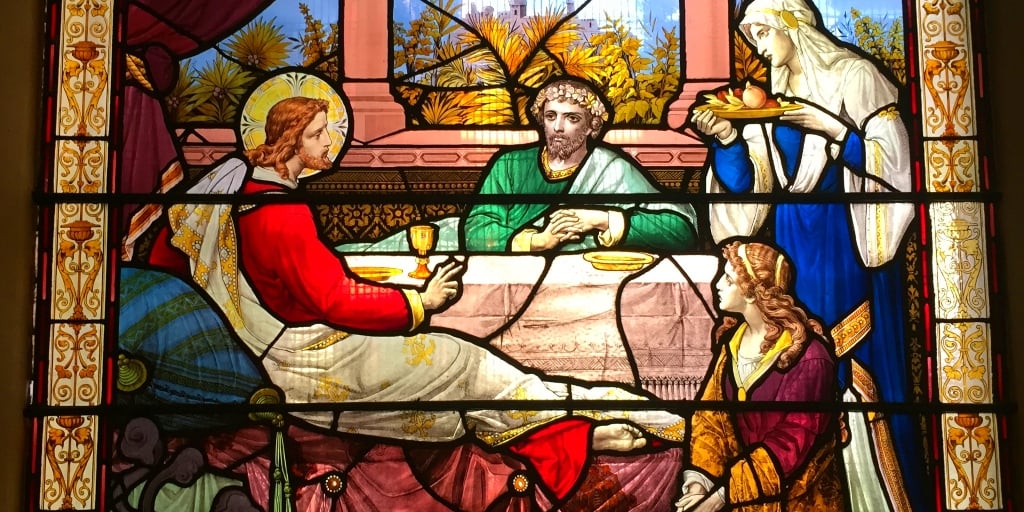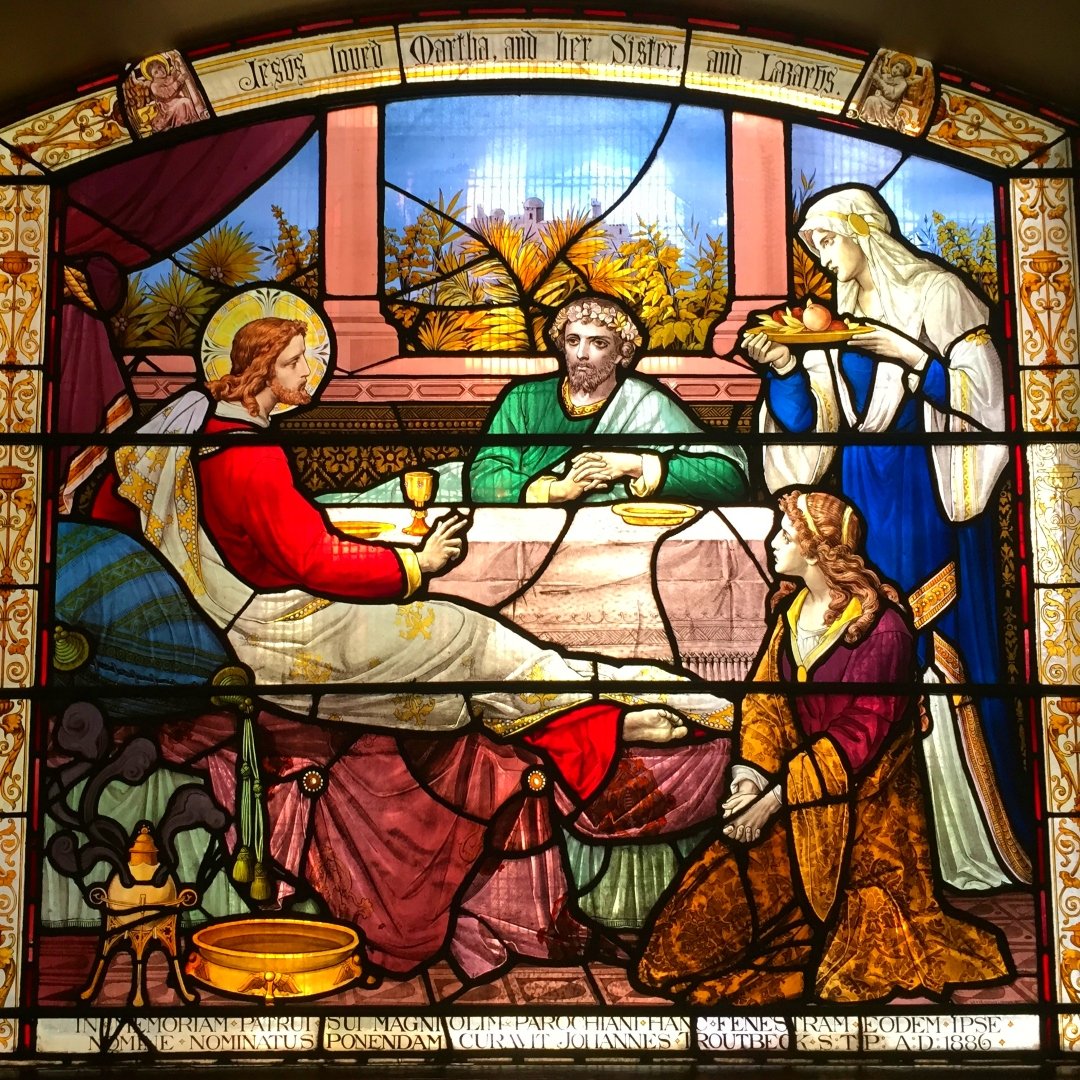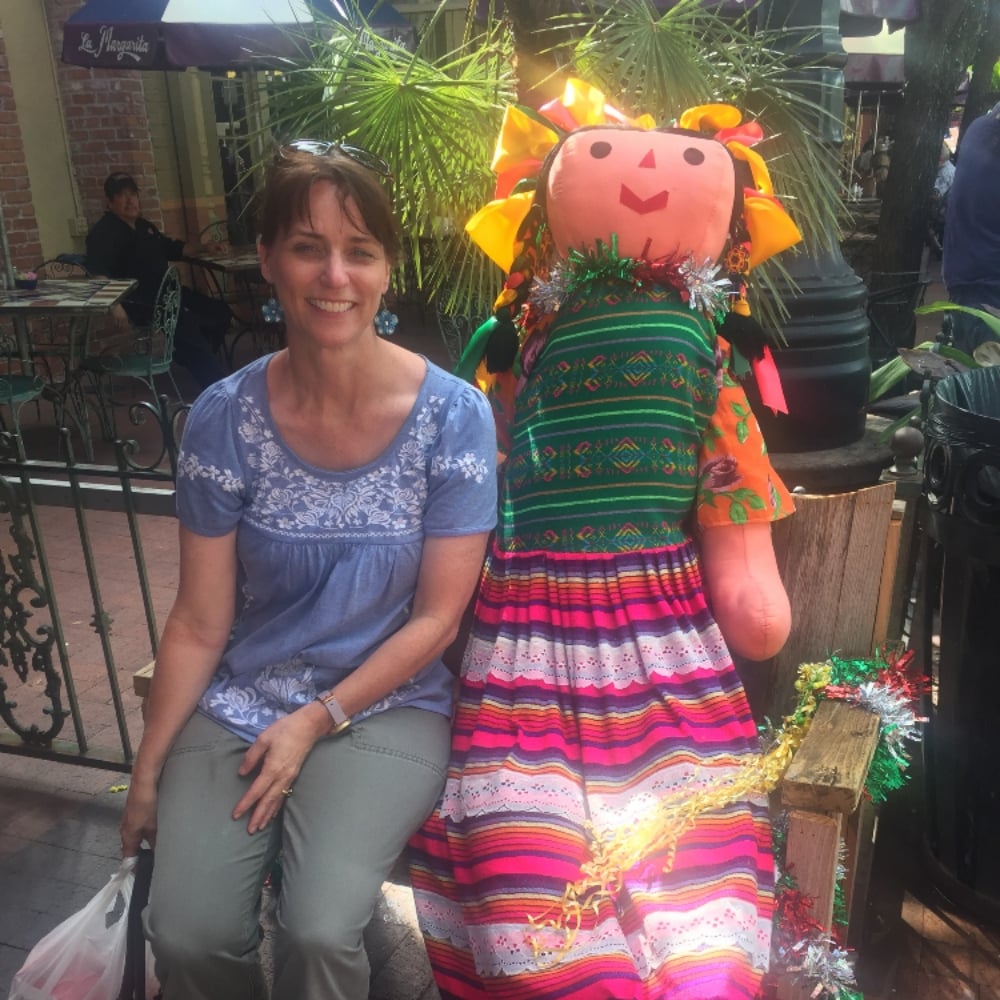
Sarah Pedrozo reflects on the story of Martha and Mary, and how we can become more like Mary as we continue through the Lenten journey this year.
I’ve always struggled with the story of Martha and Mary. The usual interpretations of this story in Scripture have never quite satisfied. I understand that Jesus is inviting Mary into a closer relationship with Him when He acknowledges her place, sitting at His feet. This was radical, as typically only men were permitted to assume the posture of a disciple by sitting at the feet of their rabbi, and Jesus extends this privilege to Mary. This is a great honor for Mary, but it makes the contrast between her and Martha even more noticeable.
If Mary is sitting at the feet of Jesus, listening to His word, learning from Him and growing in her relationship with Him, then who is going to take care of all the people in the house? It’s unlikely Jesus and His followers are going to help. Perhaps there were some other women who were in the group. Maybe they could lend a hand. But then again, that means they, like Martha, are tasked with the kitchen duties and miss out on visiting with Jesus.
Martha herself seems a bit resentful that she is doing all the work. In fact, Scripture states she was “burdened with much serving.” Martha says to Jesus, “Lord, do you not care that my sister has left me by myself to do the serving? Tell her to help me.”
But Jesus merely replies.
“Martha, Martha, you are anxious and worried about many things. There is need of only one thing. Mary has chosen the better part and it will not be taken from her.” (Luke 10:42)
Is Jesus inviting Martha to join her sister and listen to Him, to sit at His feet? Are the needs of hospitality, a tremendously important aspect of ancient Judaism, simply to be postponed or even ignored? Scripture doesn’t say. And how are we to apply this teaching of the Lord in the midst of our own responsibilities and busy days?
I pondered the story of Martha and Mary again recently. Now that Ash Wednesday has passed and we are fully into the 40-day Lenten journey, it seems even more important to find ways to become like Mary, but how? I took another look at this Scripture, hoping to find some inspiration.

The Martha and Mary story is described in the Gospel of Luke, Chapter 10, verses 38 to 42. But earlier in that same chapter 10, in verses 17 to 20, Luke describes the “return of the 72,” when the disciples Jesus had sent out, two by two, to preach His word and prepare His way, return triumphantly to report on their missions. Scripture says the disciples were rejoicing, saying, “Lord, even the demons are subject to us because of your name.” (Luke 10:17) Jesus responds by saying “I have observed Satan fall like lightning from the sky.”
The footnote given to Jesus’ statement reminds us that as the Kingdom of God is being established, the evil spirits in power on earth are being overthrown. The “dominion of Satan over humanity is at an end.” Jesus, solely through the power of His word, is vanquishing our common enemies. It is soon after this conversation with the 72 that Jesus enters the home of Martha and Mary. He finds Martha struggling with one enemy in particular, the spirit of Acedia.
Often referred to as Sloth, the vice of Acedia is one of the Big Seven Vices, along with Pride, Gluttony, Wrath and the rest. Although we sometimes think of Acedia as being lazy, that description is not quite correct. Acedia is not about sleeping in or not doing the dishes. It is often called the “noon-day devil,” because it shows up at the hot noon hour when the sun is high in the sky, tempting us toward restlessness, distraction, boredom and lack of attention. It makes the spiritual things seem unreal, unimportant and even unwanted. It manifests in either despair, depression and feeling overwhelmed, on the one hand, or being a workaholic, staying busy performing an endless number of tasks, on the other.
Jesus names both of these conditions in Martha. He tells her that she is “worried and anxious,” and we know she is also engaged in a hundred tasks around the house. He speaks His word to her, “There is need of only one thing.” Jesus doesn’t tell Martha to stop doing everything. He says she just needs to do one thing, to listen to Him, to seek the kingdom He has come to inaugurate. He gives her his word to overcome Acedia by taking on the virtue of Diligence, encouraging her to be focused, calm, careful and persistent.
As I continue to journey through Lent this year, I’m going to pay more attention to any feelings prompting me to either give up or add an undue amount of Lenten practices and remember that only one thing is required. Especially if those feelings come during the noon-day hour.

Copyright 2023 Sarah Pedrozo
Images: Andrewrabbott, CC BY-SA 4.0, via Wikimedia Commons; Canva
About the Author

Sarah Pedrozo
Sarah Pedrozo has worked in family faith formation for the past 15 years, helping families learn and live their Catholic faith. With master's degrees in theology and English, she especially likes using stories to catechize. Sarah blogs at BasketsAndBlessings.com, in between working and taking care of her family. She loves bluebonnets, her rescue dogs and the Texas Hill Country.


.png?width=1806&height=731&name=CatholicMom_hcfm_logo1_pos_871c_2728c%20(002).png)
Comments